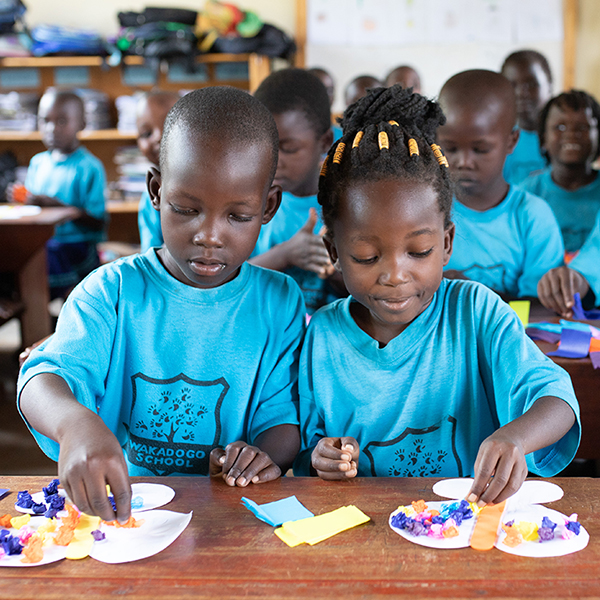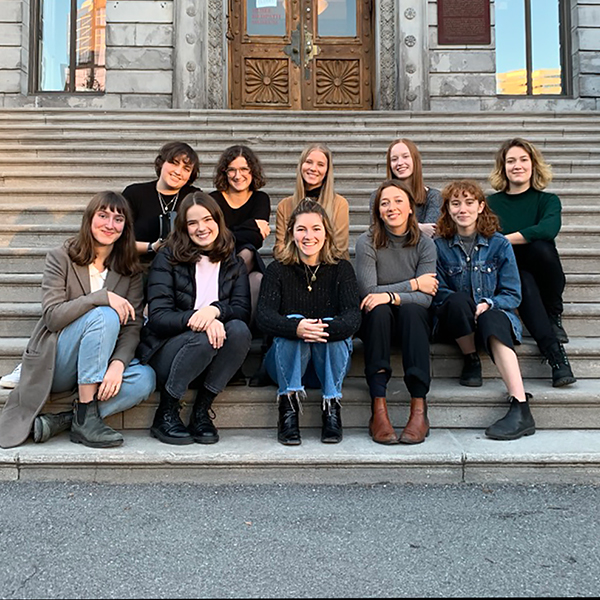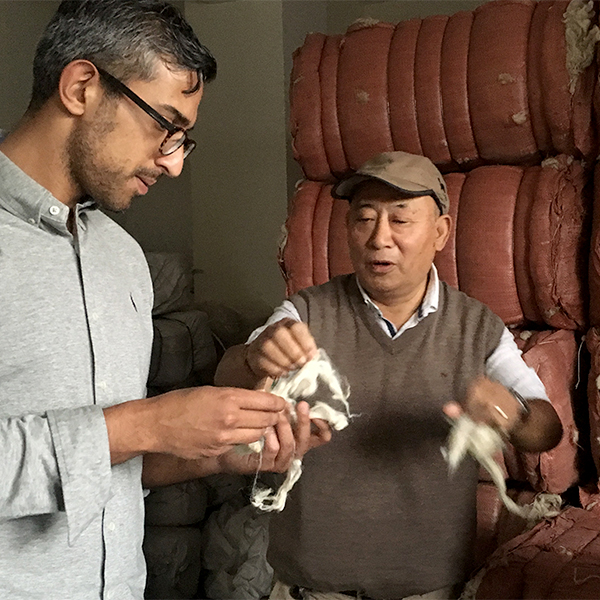Richard Daneau, BCom’86, is a “vile capitalist.”
Those are his own words. In fact, he lets out an almost maniacal laugh as he utters them over the phone.
But while Daneau may be a capitalist — and a rather successful one at that — he’s certainly no Gordon Gekko. It is his instinct for running a tight ship, for squeezing the most out of every dollar, that has made the former entrepreneur indispensable at Moisson Montréal, Canada’s largest food bank.
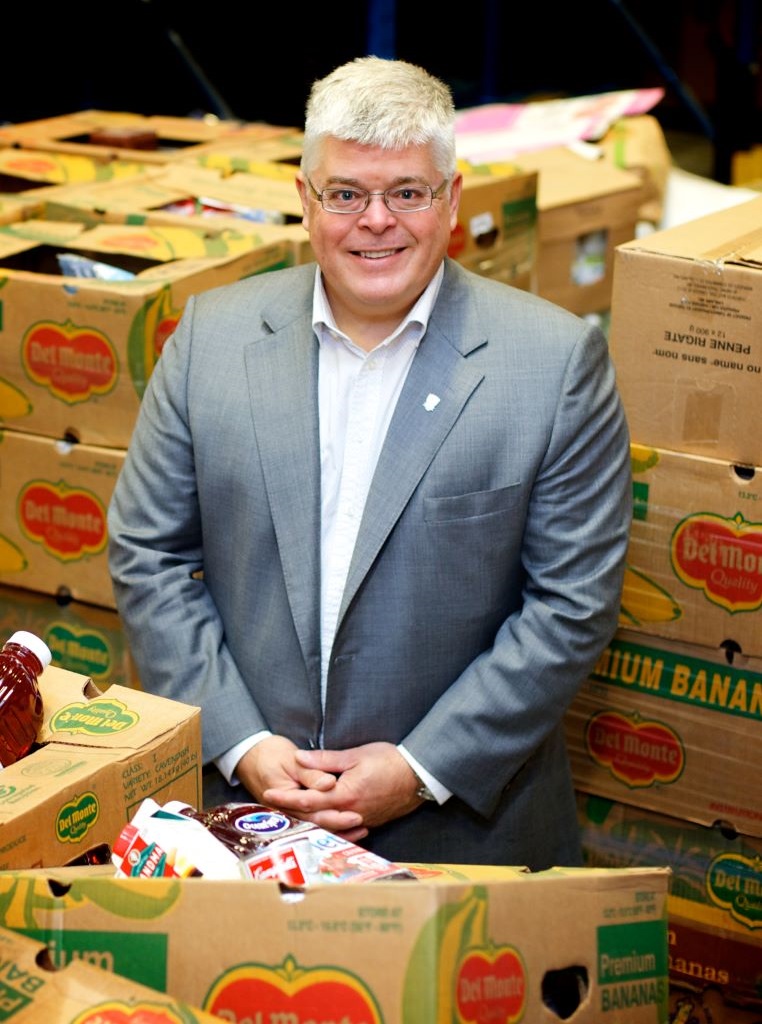
“I didn’t even know what Moisson Montréal was, I kind of discovered it by accident,” says Daneau, who co-owned a snow removal business before becoming the food bank’s director in 2016.
“When I saw how efficient their operation was, I said to myself, ‘If we would have been [like] this at my company, we would have literally been printing money.’”
Like many of his former business colleagues, Daneau assumed charities were run by well-meaning, do-gooder types who would have struggled in the corporate world.
“Boy was I wrong,” he says. “We’re in the business of finding thousands of pounds of food before it expires, getting our hands on it and getting it to the needy as quickly as humanly possible.
“We go 100 miles per hour, that’s the pace. And during the pandemic, when demand increased by 37 per cent, we went 137 miles per hour. I’d never seen anything nearly as challenging in the for-profit sector. With investors, you can pull out the old book of 1,001 excuses, but you can’t do that when [you’re] helping vulnerable people. You have a mission and failure is never an option.”
Daneau is one of several McGill alumni at the helm of some of Montreal’s most important charitable organizations. The four alumni profiled here have studied in fields as varied as law, management, engineering and psychology, but each has played an instrumental role in addressing the needs of some of the city’s most vulnerable residents – a challenging job made even more complicated by the coronavirus pandemic.
*****
Marina Boulos-Winton, BA’86, DipManApp’90, was a psychology student looking for work when she found a spot answering a crisis line at the Montreal Women’s Centre through the Students’ Society of McGill University.
As one might imagine, it was a tough gig.
“Women don’t call the women’s centre when things are going well,” says Boulos-Winton. “You’re talking to people in the worst moments of their lives. One of the calls I’ll never forget was from a woman who was beaten to a pulp by her boyfriend. She was asking me — I was 21 at the time — if she should press charges because the hospital thought she had internal bleeding.
“You can’t give advice [in that role], you’re supposed to just listen and help women find resources. But it’s incredibly difficult to hear, you feel helpless. I think that’s when I realized that maybe I wasn’t right for the front lines.
“I knew right then and there that I wanted to be in the management of a social service agency.”
Three years later, at 24, Boulos-Winton became the executive director of the Tel-Aide crisis line and she has spent the past three decades at the helm of organizations like Dans la Rue — which works with homeless youth — and, most recently, the Chez Doris women’s centre.
In 2016, under Boulos-Winton’s leadership, Chez Doris received federal government funding to find housing for homeless Indigenous women in Montreal. So far, 68 women and 52 children have found a home through the program.
In some cases, getting their own apartment allowed women to regain custody of their children and begin to find the safety and stability they’d fought for for years. Chez Doris and their workers have built up such a good track record that the Quebec government is now assisting the organization in a new project to house women.
The Chez Doris team is on track to find apartments for about 60 women between now and next March.
“I have little to do with the on-the-ground success of Chez Doris, that credit belongs to our staff, our volunteers and the women we work with,” says Boulos-Winton. “What I think I have done is helped the organization grow, helped it secure more funding and expand its services from five days a week to seven.”
The organization has had to adapt to COVID-related safety measures and that has put restrictions on the number of women who can receive support at the centre at any one time, but Chez Doris still offers breakfast and lunch meals, take-out dinners, emergency clothing and access to caseworkers, among other types of support.
There is a sort of day-to-day, slow burning trauma that comes with working at a women’s centre like Chez Doris. Since she took the reins almost five years ago, Boulos-Winton says she can think of at least 40 women who died, often in terrible, preventable circumstances.
“I take a lot of pictures at work and sometimes, when I’m looking through them, it’s astounding how many of these women have passed on,” she says. “You never forget that even if you’re working on big picture stuff, it’s about helping vulnerable women. And I’m lucky to be a part of that mission.”
*****
James Hughes, BCL’91, was a law student at McGill in the early nineties, throwing a fundraising party at the Blue Dog bar on Saint-Laurent Blvd. when he realized he might have a knack for helping people.
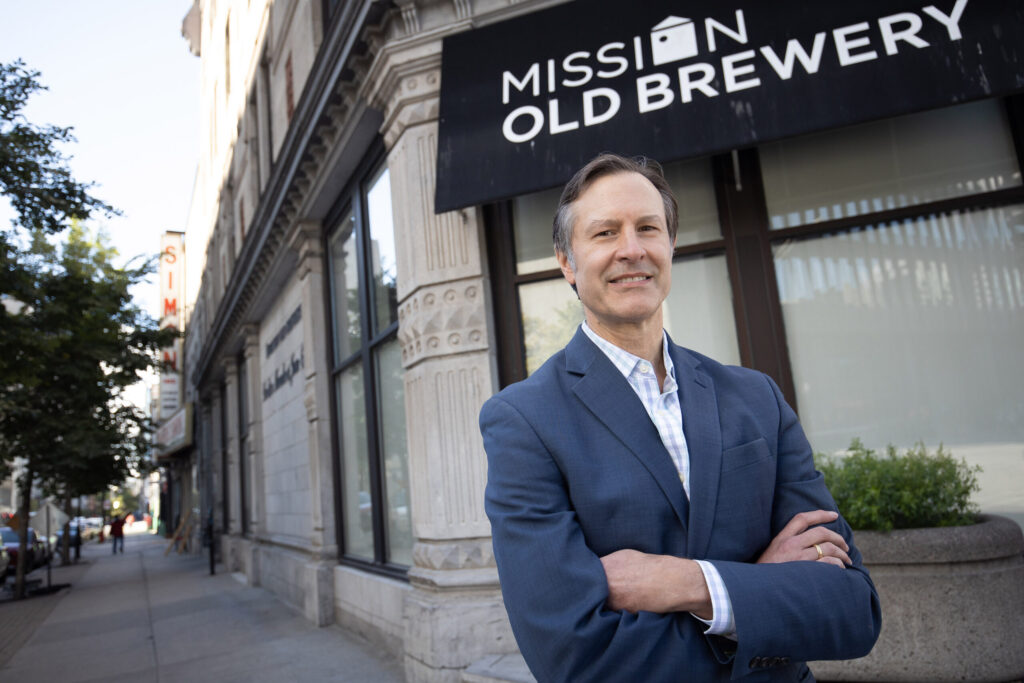
That night, the bar split the take with Hughes’ group to help finance the work of a downtown food bank and community centre called Share the Warmth. He remembers standing in an alley at 3 a.m., struggling to fit all of the clothing donations into a van when a life-changing thought hit him.
“I loved it, there was no feeling quite like it,” says Hughes. “You’re doing a small thing, but you’re part of a larger movement that wants to help people in need.”
Now in his second “tour of duty” at the Old Brewery Mission (OBM) — Quebec’s largest homeless shelter — Hughes has worked at the J.W. McConnell Foundation, he’s served as deputy minister of social development in New Brunswick and he edited the book Beyond Shelters: Solutions to Homelessness in Canada from the Front Lines.
When Hughes first served as the director general of OBM in 2004 (he is now the president and CEO), the goal was to manage homelessness. To give people a dry place to sleep and a warm plate of food so they wouldn’t have to spend the night outside.
But he has been part of a movement that is shifting the approach from managing extreme poverty to providing permanent solutions.
“We were only beginning to look at housing the homeless in their own apartments back in 2004,” he says. “Now, under the leadership of my predecessor Matthew Pierce, most of the people we work with are in their own form of housing. Whether that’s social housing or private housing, we support over 300 people who would have otherwise been on the streets.” Every homeless person who comes to OBM meets with a counsellor and the ultimate goal is to find permanent housing for that person.
“Ninety-three percent of the people we house stay housed,” says Hughes. “It doesn’t mean the fight is over. We still have clients that come to our emergency shelter and they need help, they struggle with mental illness, with addiction, they need customized services that we’re trying to offer them.
“But the thing I would hope people out there realize is that working with the homeless, it’s a place and a profession of hope. That’s what we offer.”
*****
“Why are we here and what are we supposed to do with this life?”
These are some of the questions that haunted Lili-Anna Pereša, DipMgmt’97, after the École Polytechnique massacre in 1989. Peresa was among the small percentage of women who graduated from the engineering school in 1988 and the following year 14 of Polytechnique’s students were murdered on campus simply for being women.
“It was a wake up call,” says Pereša. “I started to think that my values, my life and my work didn’t have to be different things. That my job could mean something, that my life could be dedicated to the service of other people.”
Before arriving at McGill, Pereša spent time teaching physics in Malawi and worked her way up to the position of executive director at the women’s YMCA in Montreal.
In fact, she was still working at the YMCA when she enrolled in a McGill management program.
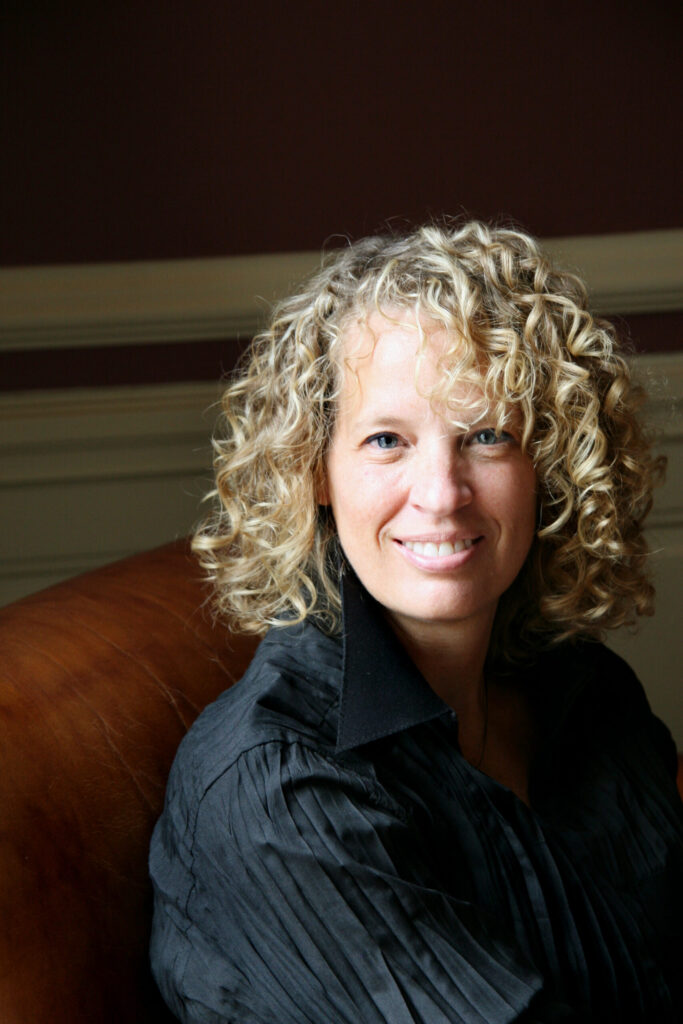
“Until I started at McGill, I kind of just used my instincts on the job,” says Pereša, now the president and director general of Centraide of Greater Montreal. “What the courses did was confirm some of the decisions I was making on the job but also grounded them in practice backed by theory and research.
“I had been an engineer and I sort of transformed into a social engineer. Now, I was learning to run a team, to present a strategic plan and to take my experience and filter it through an academic setting.”
In her eight years at the helm of Centraide, Pereša says she’s learned that it’s “the new norm” to see charities run by people with MBAs, masters degrees or extensive experience in business.
“What happens, I think, is that this work isn’t a religious experience exactly, but it is an experience that calls upon your deepest convictions,” she says. “In a lot of cases, you have people who could have chosen to bring their talents to the private sector and they’d probably be leading large successful businesses.
“But there’s something about this work that, when you find it or it finds you, it’s hard to go back.”
Centraide plays a vital role in Montreal, supporting the work of 350 different agencies that focus on a range of issues, including poverty, food insecurity and social isolation. Centraide estimates that one in seven Montrealers have benefitted from the programs it is involved in.
In mid-November, Pereša will be leaving Centraide to become the new president and CEO of another prominent Montreal NGO, the McConnell Foundation, which is involved in a range of initiatives that promote everything from Indigenous entrepreneurship to sustainable food systems to mental health programs for children.
*****
Richard Daneau jokes that when he first arrived at McGill, he could barely spell his name in English.
“As a French-Canadian kid from across town, I came to learn the language, to figure out what the other solitude was up to,” he says. “Along the way, I learned how to run a business. It hadn’t occurred to me that I would wind up at a food bank.”
It was a sort of happy accident that led Daneau to Moisson Montréal.
His son was doing a school project on charities and Daneau decided to accompany him for a tour of the food bank’s warehouse.
“I knew they were looking for a director and, after seeing the enormity of their operation, I was intrigued,” says Daneau. “Back then, I had sold my company and I was basically retired, watching my sons going to school every day as I sat there and read the newspaper.
“It’s tough to tell them to work hard and chase their dreams when you’re in your pajamas. So I applied for the job and they hired me. And five years later, it’s still throwing me curveballs.”
Take COVID-19, for instance. When it became clear, in March, that Montreal was at the epicentre of the pandemic, Daneau’s operation had to reinvent itself.
Moisson Montréal runs on the work of corporate volunteers and once the lockdown came into effect — forcing millions of Quebecers to stay home — the food bank’s labour pool dried up.
So Daneau and the City of Montreal struck a deal to get blue collar workers to handle operations at Moisson Montréal.
“We had to train new people, set up new safety protocols and reassure the organizations we worked with, all while dealing with an economic crisis,” he says.
“But we did. In six months, we gave away $55 million in food. Do you have any idea how many truckloads of food that is?
“In this work, you need people with big hearts, you need people who would give their everything to the cause. What we do helps feed the needy, it helps prevent food from ending up in landfills.
“But what we do costs money and we live off donations that could disappear at any moment. In circumstances such as these, sometimes you need a vile capitalist in charge.”
Christopher Curtis earned an APTN/CAJ Reconciliation Award from the Canadian Association of Journalists and a National Newspaper Award nomination for his work with The Montreal Gazette. He recently left the newspaper to join Ricochet Media as a crowdfunded investigative journalist.
